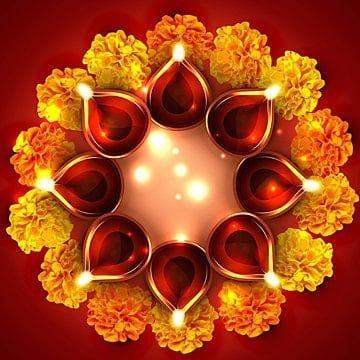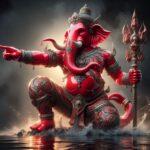
Diwali: The Festival of Lights in India
- utsavhub.com
- 24 September 2024
- Festival Details
- 0 Comments
Diwali, also known as Deepavali, is one of the most significant festivals in India, celebrated with grandeur and enthusiasm. The word “Deepavali” means “rows of lamps,” symbolizing the victory of light over darkness, good over evil, and knowledge over ignorance.
Significance:
Diwali holds different meanings across regions in India:
- Hindu Tradition: It marks the return of Lord Rama to Ayodhya after a 14-year exile and his victory over the demon king Ravana. The day is also linked to the goddess Lakshmi, the deity of wealth and prosperity, who is worshipped on this day.
- Jainism: It commemorates the spiritual awakening of Lord Mahavira, the 24th Tirthankara.
- Sikhism: Diwali is celebrated to mark the release of Guru Hargobind Ji from imprisonment by the Mughal emperor Jahangir.
Customs and Traditions:
- Lighting of Diyas (Oil Lamps): Homes, temples, and public spaces are illuminated with clay lamps, symbolizing the removal of darkness.
- Rangoli: Colorful patterns are created on the floors of homes using powdered colors, flowers, and rice.
- Fireworks: Lighting fireworks is a long-standing tradition that signifies the celebration of victory.
- Exchanging Gifts and Sweets: Families and friends exchange sweets, gifts, and greetings to express joy and goodwill.
- Lakshmi Puja: People worship Goddess Lakshmi, seeking prosperity, health, and wealth for the coming year.
The Five Days of Diwali:
- Dhanteras: The festival begins with Dhanteras, dedicated to wealth and health. People buy new items, especially precious metals.
- Naraka Chaturdashi (Choti Diwali): The second day symbolizes the defeat of the demon Narakasura by Lord Krishna.
- Diwali Day: The main day involves the lighting of lamps, performing Lakshmi Puja, and bursting fireworks.
- Govardhan Puja: This day commemorates Lord Krishna’s lifting of the Govardhan Hill to protect villagers from a storm.
- Bhai Dooj: Celebrating the bond between brothers and sisters, this day is similar to Raksha Bandhan.
Eco-Friendly Celebrations:
In recent years, there has been a push toward eco-friendly Diwali in india, emphasizing the use of organic colors for Rangoli, earthen lamps, and avoiding harmful firecrackers to reduce pollution.
Global Celebrations:
Diwali is not just limited to India. It is celebrated by the Indian diaspora worldwide, from the United States to the UK, Singapore, and Australia. Public events and grand celebrations make it a truly global festival. For more to know , come to our website. www.utsavhub.com

